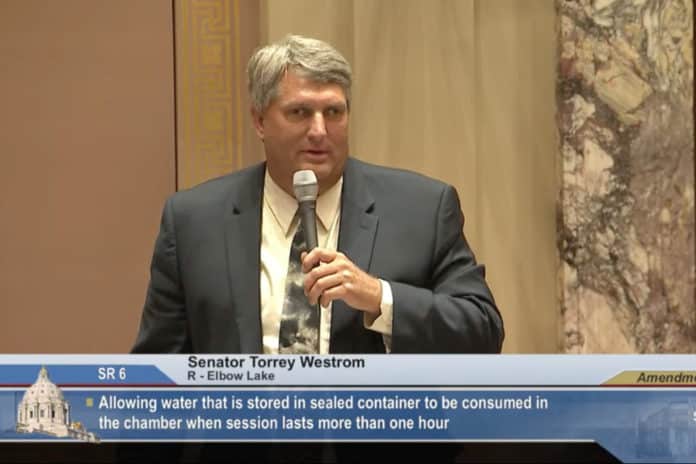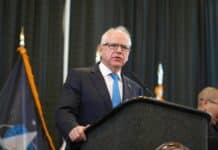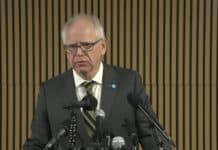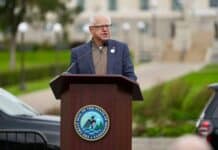
The Minnesota Senate used 30 minutes of its Thursday session to debate whether or not members should be allowed to drink water on the floor of the chamber.
Republican Sen. Torrey Westrom proposed an amendment to Senate rules that would allow members to bring water into the chamber if it is in a sealed container and session lasts more than one hour.
The change received bipartisan opposition from senators who believe the upper chamber should be spared from the lax decorum of the House. They also said water is available in a room immediately off the Senate floor.
“I just believe it’s a slippery slope. Today water, tomorrow coffee. The next day Hoffman’s going to be bringing in candy. Westlin’s going to be bringing in homemade bagels. Where does it all end?” wondered Democratic Sen. Sandy Pappas.
Sen. Ann Rest, also a Democrat, agreed, saying senators should continue to show “respect for the historical nature of this chamber and our traditions.”
“I particularly agree with Sen. Pappas’ comments about a slippery slope. When will it stop? When will the decorum of the House become the decorum in the Senate? What a tragedy that would be,” she said.
Westrom’s proposal has been shot down in the past because of fears that water could spill onto the Senate’s antique desks, hence the “sealed container” requirement.
Republican Sen. Eric Lucero voted in favor of the rules change because the “CDC recommends healthy hydration.”
“In this particular instance, I would wholeheartedly recommend agreeing with the CDC guidelines,” he said.
The amendment ultimately passed in a bipartisan vote of 38-29.
Republicans in the chamber, now controlled by Democrats, successfully passed additional rules changes. The first will prevent senators from receiving a per diem for days they work remotely. The second will require senators to disclose where they are voting from when working remotely.
“Senate Republicans are committed to increasing transparency for the public after two years of restrictions and limitations,” Senate Minority Leader Mark Johnson said. “We are here to help improve the lives of Minnesotans, and that starts with improving access to elected officials and instilling accountability to their voting records.”










